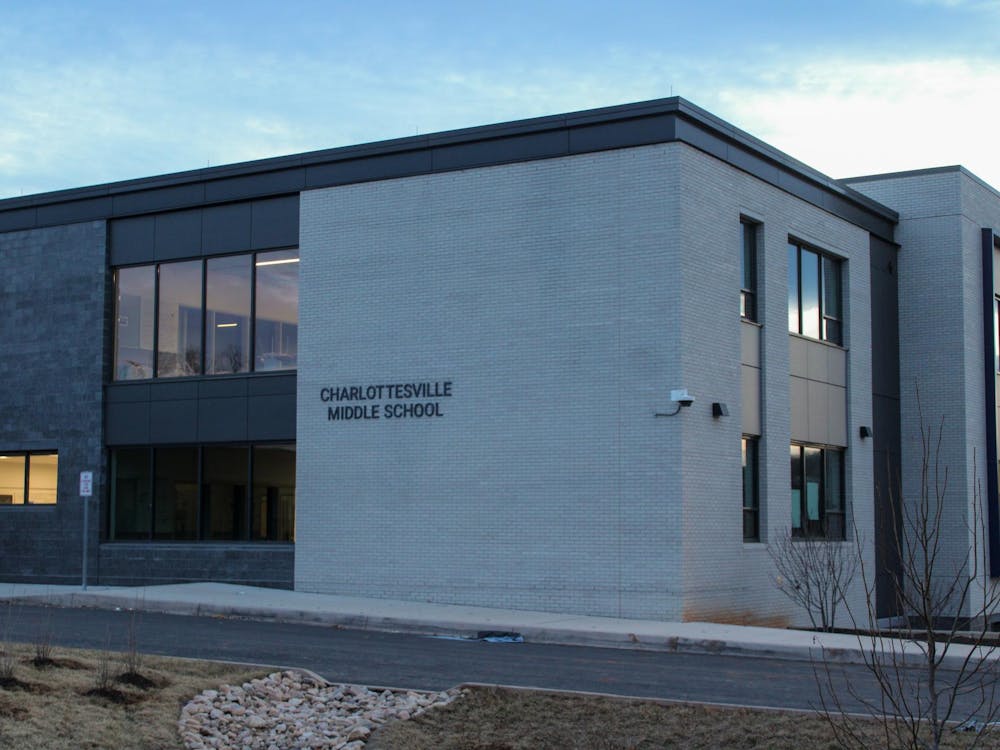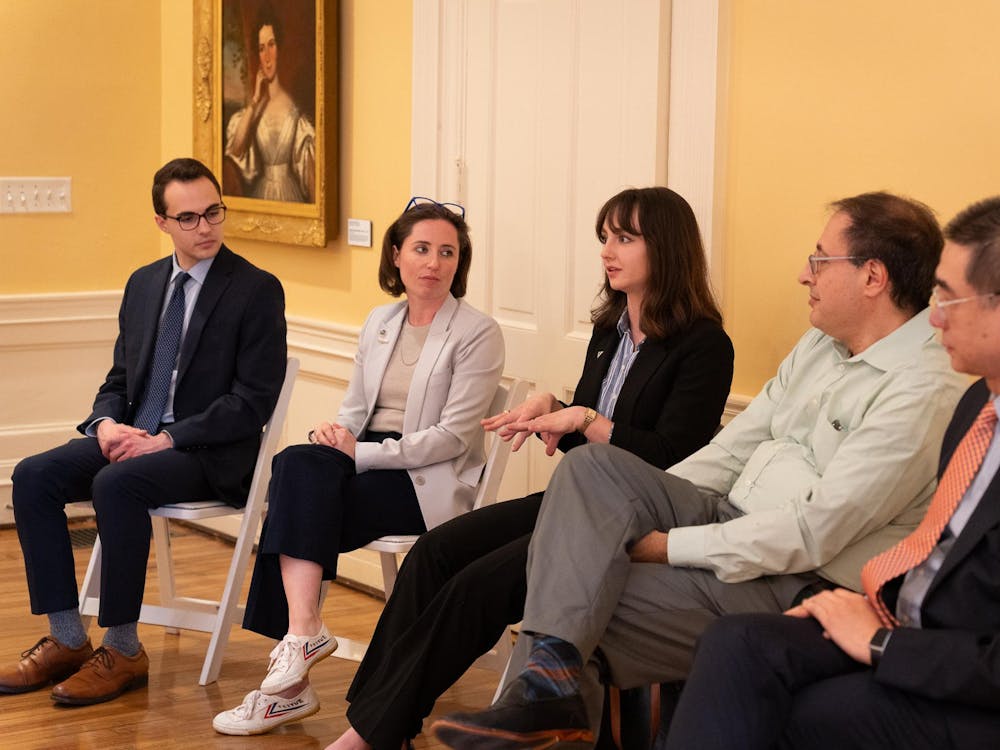The University's biomedical engineering department - already one of the top in the country - took another step forward last month in furthering its national reputation.
Last month, the American Institute of Medicine and Biomedical Engineering elected Klaus Ley and Thomas Skalak as two of 66 fellows in its 2001 class of inductees.
The two, both professors of biomedical engineering at the University, were recognized for outstanding contributions to their field.
With the addition of Ley and Skalak, the University has six AIMBE fellows - making it one of the most well-represented academic institutions. Only 20 universities across the nation have as many members in AIMBE's College of Fellows.
"It's a good strong contingent," said AIMBE Executive Director Kevin O'Connor. Being selected as a fellow "is a significant honor in the field of medical and biological engineering - the University of Virginia has an excellent department."
AIMBE, a non-profit organization, serves as an umbrella group for the profession of biomedical engineering.
Its primary goals are to promote awareness of the field and monitor public policy on related issues.
AIMBE has an Academic Council, which consists of the University and 15 other academic institutions, a Council of Societies and a College of Fellows, which has about 600 individual members.
Each prospective fellow is nominated by either an existing fellow or a voting representative of another AIMBE branch.
O'Connor said AIMBE fellows represent the top 2 percent of professionals in the field of biomedical engineering.
While being tapped as a fellow is an honor, O'Connor said, it also allows fellows to serve as advisers for AIMBE and other organizations. In the past, fellows have even testified before Congress.
According to AIMBE, Ley was inducted for his "outstanding contributions to the understanding of the mechanics of adhesion molecules and their role in inflammation and atherosclerosis."
His research focuses on disease processes, diagnostic tools and some treatment plans. Ley and his lab assistants are researching white blood cell adhesion in atherosclerosis, a disease that leads to heart attacks.
Ley, the co-director of the University's Cardiovascular Research Center, has studied chemokines, which are small molecules that attract white blood cells.
"We just discovered a role of chemokine in atherosclerosis," Ley said. "You can manipulate them pharmacologically and use it as a treatment modality."
AIMBE said it elected Skalak to recognize his "distinguished achievement in deepening understanding of capillary rheology, microvascular angiogenesis and arcade arteriolar growth."
Skalak is the president of the Biomedical Engineering Society - a national organization that promotes scientific exchange, academic enhancement and professional guidance for students.
Skalak primarily researches microvascular network remodeling, which involves studying the treatment of hypertension, or high blood pressure.
"When you have hypertension, there is a likelihood that there will be more blood vessels, which might not be good for the body," said Jen-shih Lee, chairman of the biomedical engineering department and one of AIMBE's founding fellows. "Skalak is figuring out why or what triggers the increase in microvascular network.
"With that understanding, we may be able to prevent the development of hypertension."
The University's biomedical engineering department is one of the top 15 in the nation and plans to move to the top 10 within a few years, Lee said.
About three years ago, Lee received a $10.5 million grant from the Whitaker Foundation, which also promotes biomedical engineering projects.
The grant helped fund the new biomedical engineering facility under construction near Jordan Hall and helped the department expand the number of faculty members from 12 to 18.
The recent inductees to the College Fellows are an indication of the high caliber of University faculty members, Lee said.
"It certainly shows that our faculty has really contributed to the society in general and to the biomedical profession in particular," he added.






